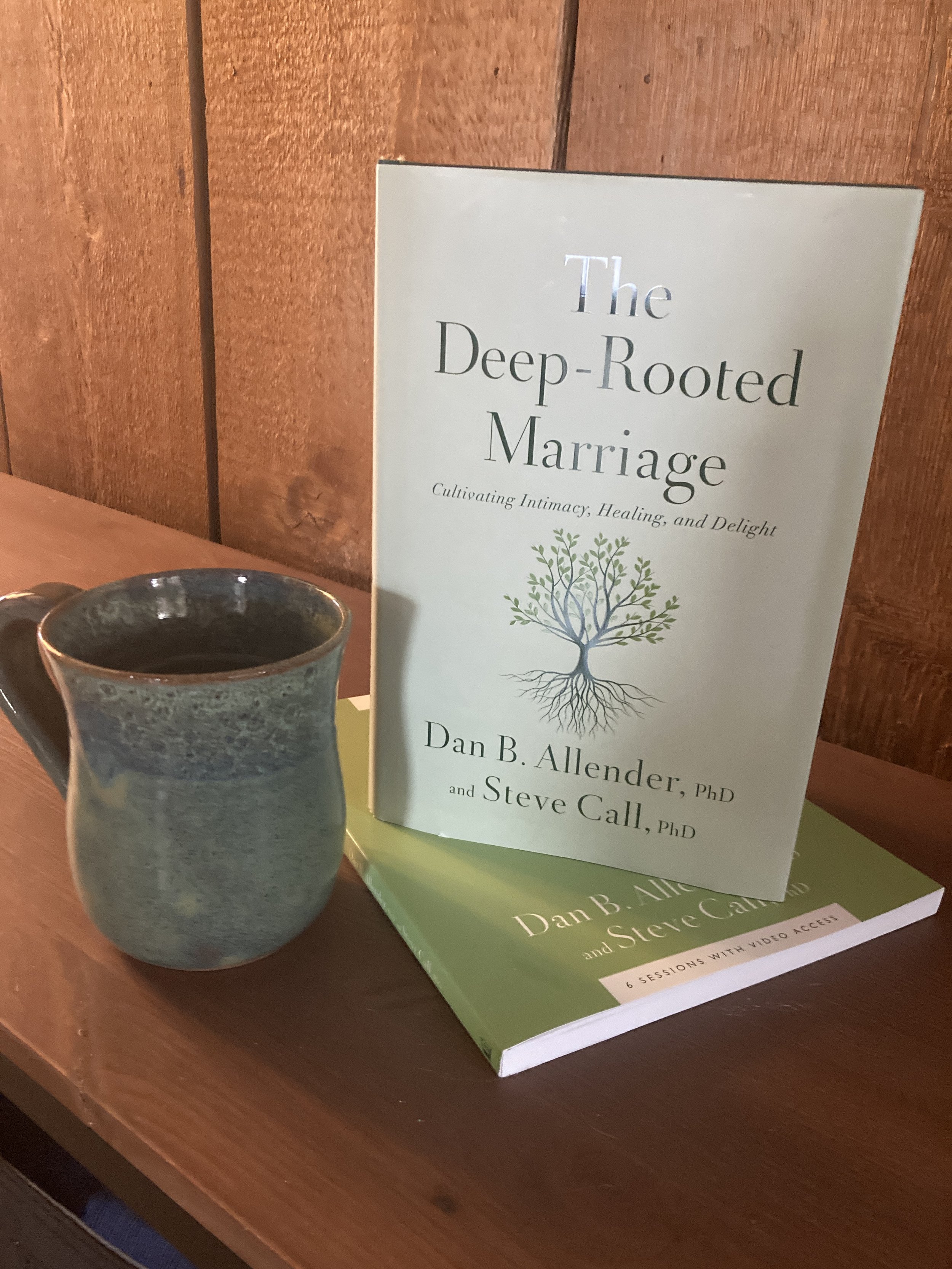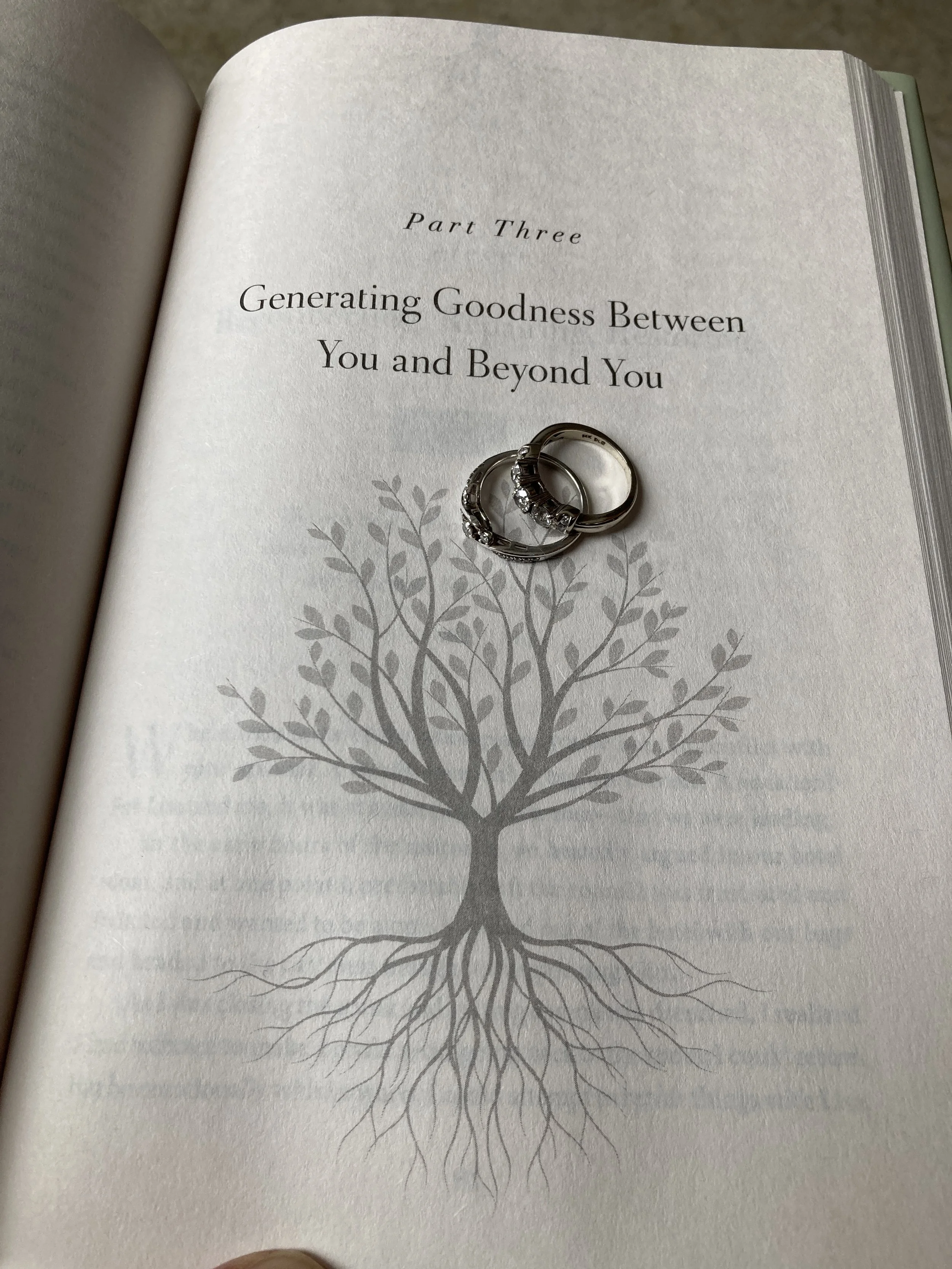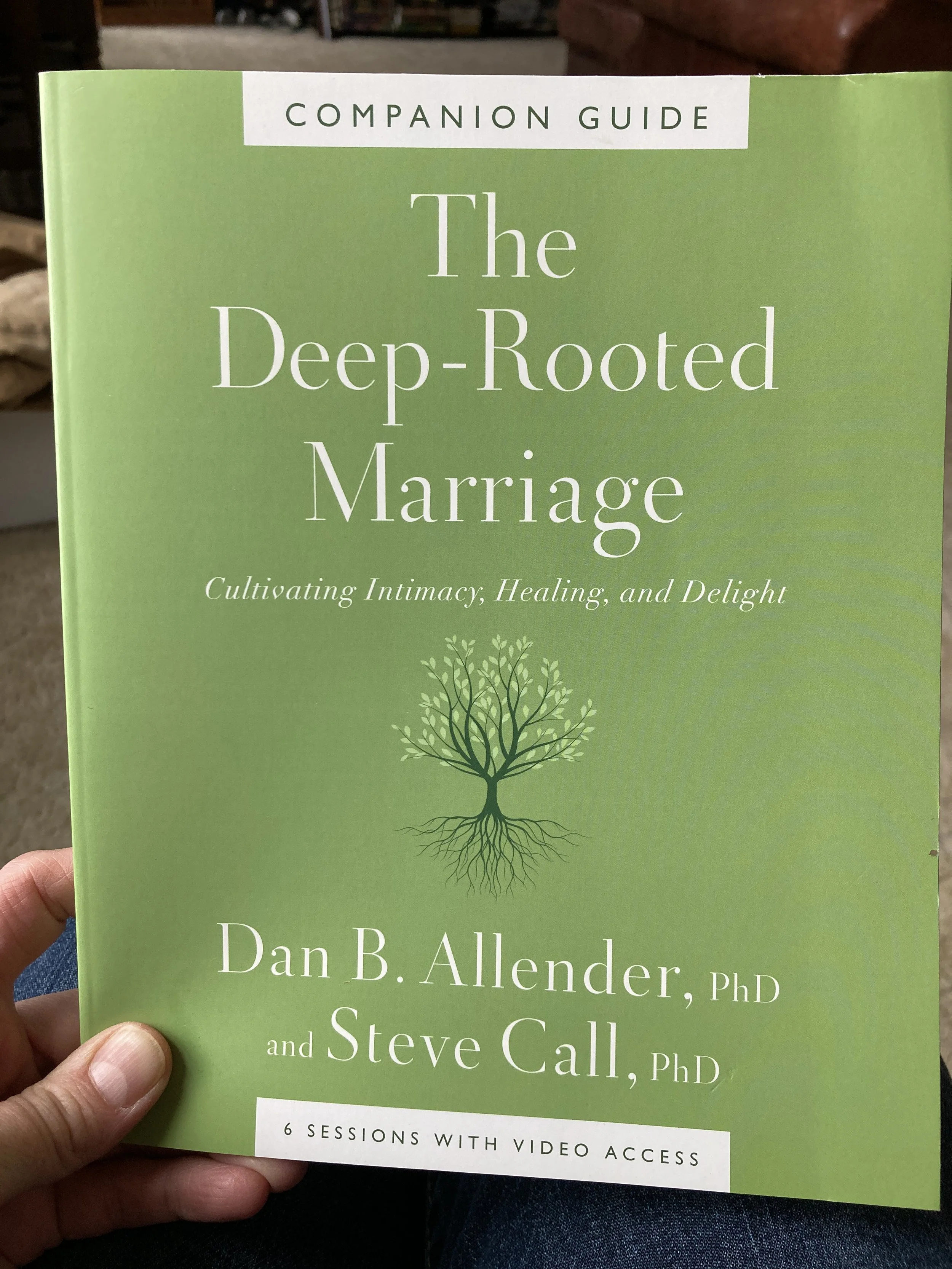Book Review - The Deep-Rooted Marriage by Dan B. Allender, PhD and Steve Call, PhD
(This book review is being done in exchange for a free copy of the book. No money was exchanged for this review. All opinions are my own.)
My husband, Mark and I have been married for 37.5 years. The fact that we have been together for more years than we were on our own is rather mind boggling. We came into our marriage, both with certain expectations and our own share of unrealistic ideas about what a Christian marriage should look like. Over the course of those three-plus decades we have read many books on marriage. Thankfully we both were open to the idea of reading books to try to find a path through our unique personalities and our differences of opinion. All of these books were helpful in a variety of ways, but it seemed we still struggled with the same issues time and time again.
The Deep-Rooted Marriage is the first book I have read that has actually left me feeling hopeful rather than overwhelmed. (Mark and I will be reading the book together at a future time, but I needed to get through it for this book review, so you will be hearing my thoughts on it without those of my spouse.)
Dan Allender received a Master of Divinity from Westminster Theological Seminary, and a PhD in Counseling Psychology from Michigan State University. He is a “pioneer of a unique and innovative approach to trauma and abuse therapy.” He also helped found the Seattle School of Theology and Psychology, and The Allender Center. Steve Call received an MA in Theology from Fuller Seminary, an MS in Marriage and Family Therapy, as well as a PhD in Clinical Psychology from Seattle Pacific University. He and his wife, Lisa are the founders of The Reconnect Institute.
Dan and Steve worked hard to author a book that speaks to the heart. This is not a book of lists. It does not give you boxes to check off, nor does it speak to identify our personality differences or our varied love languages. While those things can be helpful on the road to understanding our significant others better, they honestly do not get to the core of who we are.
“Every marriage is a story of two people formed by different worlds joining together to create a universe that has never existed before. Your marriage is unique in all its goodness and in all that needs redemption….Understanding the past allows us to make sense of what’s not working in the present. If we don’t explore our earlier stories, we won’t grasp how our histories of brokenness and beauty are playing out now. And we’ll be bound to repeat them in one form or another.” (p. xi - A Note from Dan - The Deep Rooted Marriage.)
Throughout the book Dan and Steve, along with their wives Becky and Lisa, use examples from their own marriages, and from couples they have counseled, to shed light on the mysteries of marital relationships as they are affected by our upbringing, and the trauma that so many of us bring across the threshold. They also write with hope and positivity making the reader willing to open up and trust the ideas and techniques being put forth.
The book is divided into three parts: Part 1 - Getting Clear-eyed About Who You Are - addresses marital beginnings; things that end up disconnecting us like loneliness, contempt, feeling stuck and a lack of delight; and digs into the unresolved trauma that many of us bring into a marriage.
“You and your partner’s failure of each other is incredibly complex, tangled up with your deeply held ways of being in the world and the relational patterns you each developed in response to trauma throughout your lives.” (p. 35 - The Deep Rooted Marriage.)
Part 2 - Disrupting Divisive Patterns and Changing the Atmosphere - discusses how to create a safe environment in the marriage when we have long used coping mechanisms to get by: things like fragmenting, numbing, isolating as well as anxiety and flight, anger and fight, and avoidance and freezing or fawning. This part also goes more deeply into the areas of shame and contempt which I found very eye opening and compelling.
“No marriage can thrive if contempt is a frequent theme. It is the number one killer of intimacy and hope, functioning like a deadly gas filling the air and poisoning the relationship. As we settle into patterns of resentment, we don’t realize the danger we are tolerating.” (p. 107 - The Deep Rooted Marriage.)
Part 3 - Generating Goodness Between You and Beyond You - speaks to the necessary work of reconnecting, repairing and restoring our marriages through things like validation, inviting our spouses into our experience, engaging in the differences and really trying to understand each other.
“Repair in your marriage will defy logic and reasoning. It will feel both astounding and risky, especially as you give your partner access to hurts. But you are meant to be seen and known, to be honored and cared for, and you can choose to invite the deepest experiences of these things into your marriage. There will always be conflicts and ruptures for you to navigate, but as you grow stronger together over time, the duration of your disconnection will lessen and you’ll find ways to cultivate intimacy amid tension.” (p. 165 - The Deep Rooted Marriage.)
The Deep Rooted Marriage is written from the vantage point of having experience and understanding of not only marital relationships, and clinical psychology and counseling, but from having a faith base. Dan and Steve both believe in the redemptive work of Jesus Christ as being an important influence in our relationships.
I highly recommend this book for any couple, from those just thinking about getting married, to those who have been married for decades, but want to have a deeper understanding of their partner and the place of Christ’s redemptive work in the relationship.
You can also purchase a companion guide to this book, which offers additional insights, questions and exercises for you and your significant other to work through the ideas put forth in the book. At the back of the companion guide is a QR code giving you access to free chapter summary videos for the guide.
“Marriage is not merely getting along or learning to compromise; it reveals who you are and invites you to who you can become. It offers a space for you to experience what you are made for—honor, delight, and tastes of heaven.” (Back cover - The Deep Rooted Companion Guide).

















